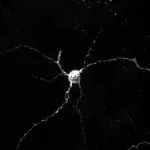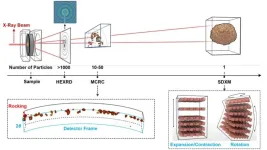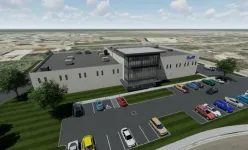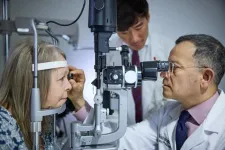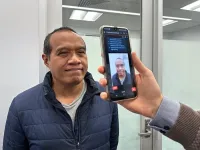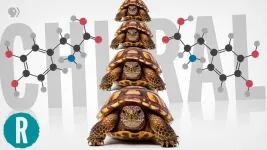(Press-News.org) African research is receiving a major visibility boost with the indexing of 10 national funders in Dimensions, the world’s largest linked research database.
This project is a collaboration with Digital Science, the Africa PID Alliance (APA), the Association of African Universities (AAU), the Training Centre in Communication (TCC Africa), and the Research Organization Registry (ROR).
“This project connects the research outputs from leading African funding bodies to the global research ecosystem,” said Joy Owango, Executive Director of TCC Africa and Project Lead at the Africa PID Alliance.
“Indexing and linking their data in Dimensions allows these African national funders to increase transparency around their research investments, demonstrate the impacts and outcomes of funded projects, facilitate new regional and global collaborations, inform strategic funding priorities through insights on research trends, and amplify Africa’s overall research contributions on the international stage,” she said.
Digital Science CEO Dr Daniel Hook said: “We’re excited to be able to partner with research organizations in Africa, and to help drive improved visibility of African research both to Africans and around the world. As Africa increases its investment in research, it is critical to ensure that its funding is routed to the most impactful projects that make a difference for Africans; and for Africa to showcase its research insights in a global context.
“Digital Science’s Dimensions will help researchers and decision-makers across the continent to garner deep, strategic insights into research – such as areas of strength or areas of opportunity in collaborations, expertise, and resourcing. We hope this collaboration can form part of the foundation for a stronger research ecosystem across Africa that will lead to global recognition of Africa’s unique research proposition,” he said.
“The continent has few science repositories and data there are rarely openly shared. We are, however, moving in a new direction that now opens doors for more research collaboration and increase the sharing of data, thereby promoting trust among researchers … as well as availing data to policy makers to use in making important decisions in government,” said Professor Olusola Bandele Oyewole, Secretary-General of the AAU. He urged African researchers not to fear sharing data so long as this is done in a responsible manner.
Director Government and Funders – Middle East & Africa at Digital Science, Amna Babiker, said: “Africa’s research landscape has been undergoing rapid change, with many nations recognizing the importance of research to their future economic, cultural and societal prosperity. It’s been a pleasure working with our many partners in Africa to understand what role Digital Science can play in helping African research institutions to reach their potential, and for their voices to be heard within global research.”
The SGCI is a multilateral initiative aimed at strengthening the institutional capacities of 17 public science funding agencies across Sub-Saharan Africa. However, until now, little was known globally about the research investments and outputs from most of these key funders, except for South Africa’s National Research Foundation (NRF), which was already indexed.
“This lack of visibility has hindered efforts to comprehensively understand, evaluate and build upon African nations’ critical investments into advancing knowledge – something we now hope to turn around,” Ms Owango said.
ROR Director Maria Gould said: “One of the key use cases for ROR is helping funders track the research outputs they have supported, and this is especially critical to raise the visibility of research activities across the African continent. We are happy that ROR can support this effort.”
The SGCI funders now globally accessible in Dimensions are:
National Research Fund (Kenya)
National Commission For Science, Technology & Innovation (Kenya)
Tanzania Commission for Science and Technology
Uganda National Council for Science and Technology
Malawi National Commission for Science and Technology
Fundo Nacional de Investigacao (Mozambique)
Tertiary Education Trust Fund (TETFUND) (Nigeria)
National Science and Technology Council (Zambia)
Ministry of Environment, Science, Technology and Innovation (Ghana)
Efforts are underway to index the remaining seven councils to fully capture funding across the 16 SGCI participating nations.
In the long-term, indexing the SGCI funders lays the groundwork for more effective research management, evidence-based policy-making, and amplifying the impacts of African research outputs globally.
About Digital Science
Digital Science is an AI-focused technology company providing innovative solutions to complex challenges faced by researchers, universities, funders, industry and publishers. We work in partnership to advance global research for the benefit of society. Through our brands – Altmetric, Dimensions, Figshare, ReadCube, Symplectic, IFI CLAIMS Patent Services, Overleaf, Writefull, OntoChem, Scismic and metaphacts – we believe when we solve problems together, we drive progress for all. Visit www.digital-science.com and follow @digitalsci on X or on LinkedIn.
About Dimensions
Part of Digital Science, Dimensions is among the world’s largest linked research database and data infrastructure provider, re-imagining research discovery with access to grants, publications, clinical trials, patents and policy documents all in one place. www.dimensions.ai. Follow @DSDimensions on Twitter and LinkedIn.
About the Research Organization Registry (ROR)
ROR is a global, community-led registry of open persistent identifiers for research organizations. ROR makes it easy for anyone or any system to disambiguate institution names and connect research organizations to researchers and research outputs. ROR provides a free and open dataset and open API for more than 109,000 organizations and counting, and is used and supported in core scholarly infrastructure around the world. Find out more https://ror.org/
About the Training Centre in Communication (TCC Africa)
The Training Centre in Communication (TCC Africa), is the first African-based training centre to teach effective communication skills to scientists. TCC Africa is an award winning Trust, established as a non-profit entity in 2006 and is registered in Kenya. TCC Africa provides capacity support in improving researchers output and visibility through training in scholarly and science communication. Find out more https://www.tcc-africa.org/
About the Africa PID Alliance (APA)
The Africa PID Alliance is part of the Open Infrastructure Program of the Training Centre in Communication (TCC-AFRICA). It strives to support scientists and inventors to disseminate and commercialize their research innovations. Through the Africa PID Alliance innovative projects, they provide reliable open research infrastructure services which provide access to knowledge and metadata about digital objects closer to the wider communities, including indigenous knowledge and patent metadata, starting from Africa. Find out more https://africapidalliance.org/
About the Association of African Universities
The Association of African Universities (AAU) is the apex higher education organization in Africa and represents the voice of higher education on the continent on regional and international bodies. With over 50 years’ experience in running programmes and projects for its member universities, the Association enjoys a unique capacity for convening the higher education community in Africa to reflect and consult on key issues affecting education on the continent. The thrust of its base is the nimble deploying of advocacy, commissioning of studies, and acting and becoming the clearing house and intelligence arm for these higher education institutions on the continent. Find out more about the AAU via its website: www.aau.org
Media contacts
Simon Linacre, Head of Content, Brand & Press, Digital Science: Mobile +44 7484 381477, s.linacre@digital-science.com
David Ellis, Press, PR & Social Manager, Digital Science: Mobile +61 447 783 023, d.ellis@digital-science.com
END
African research funders in global spotlight through Dimensions indexing project
2024-06-17
ELSE PRESS RELEASES FROM THIS DATE:
New study suggests cancer drug could be used to target protein connection that spurs Parkinson’s disease
2024-06-17
FOR IMMEDIATE RELEASE
In studies with genetically engineered mice, Johns Hopkins Medicine researchers say they have identified a potentially new biological target involving Aplp1, a cell surface protein that drives the spread of Parkinson’s disease-causing alpha-synuclein.
The findings, published May 31 in Nature Communications, reveal how Aplp1 connects with Lag3, another cell surface receptor, in a key part of a process that helps spread harmful alpha-synuclein proteins to brain cells. Those protein buildups are hallmarks of Parkinson’s disease.
Notably, the researchers say, Lag3 is already the target of a combination ...
More than 1 in 10 patients at FQHCs experience major social risk factors
2024-06-17
A first-of-its-kind study found high rates of food insecurity, housing insecurity, financial strain, and/or a lack of transportation among patients at federally qualified health centers, particularly patients who were low-income or from racial/ethnic minority populations.
Federally qualified health centers (FQHCs) offer primary care services to 1 in 11 Americans, the majority of whom are low-income and/or underinsured and may not otherwise receive this care. While prior research has shown that 70 percent of FQHCs screen for social ...
Artificial intelligence accurately screens heart failure patients for clinical trial eligibility
2024-06-17
Generative Artificial Intelligence (Gen AI) can rapidly and accurately screen patients for clinical trial eligibility, according to a new study from Mass General Brigham researchers. Such technology could make it faster and cheaper to evaluate new treatments and, ultimately, help bring successful ones to patients.
Investigators assessed the accuracy and cost of a Gen AI process they named RAG-Enabled Clinical Trial Infrastructure for Inclusion Exclusion Review (RECTIFIER), that identifies patients who meet criteria for enrollment in ...
Unlocking the mystery behind the performance decline in a promising cathode material
2024-06-17
The first generation of lithium-ion batteries for electric vehicles has been a remarkable success story. Yet, the question arises: What changes to battery materials will spur further advances to extend driving range and lower costs?
A better positive electrode, or cathode, for lithium-ion batteries has been the focus of intense past research. The cathode is one of the main components in batteries. Several candidates for cathode materials offer the prospect of batteries with much higher energy storage, leading to longer driving range. However, the capacity, or amount of current flowing out within a given time, tends to decline rapidly with charge-discharge cycling for reasons ...
A call for renaming clinical research partnerships
2024-06-17
PHILADELPHIA (June 17, 2024) - In a recently published opinion piece in BMJ Open, “Rhetoric of Research: A Call for Renaming the Clinical Research Partnership,” authors from Penn Nursing and Georgetown University School of Nursing, present a compelling argument for rethinking the language used to describe participants in clinical research. The opinion calls for a shift from the traditional term “patient participant” to “participant partner,” emphasizing the crucial role of participants in ...
SwRI breaks ground on new hypersonic engine research facility
2024-06-17
SAN ANTONIO — June 17, 2024 —Southwest Research Institute (SwRI) today celebrated the groundbreaking of the Center for Accelerating Materials and Processes (CAMP), a new facility that will support research and development for tomorrow’s high-speed aerospace engines.
“This project will help ensure the U.S. is a leader in high-speed propulsion research and development,” said Dr. Barron Bichon, director of SwRI’s Materials Engineering Department. “SwRI is committed to advancing this vital technology on behalf of Texas and the nation.”
Market forces including growth in global defense, air travel, ...
International Gemini Observatory and Subaru combine forces to discover first ever pair of merging quasars at cosmic dawn
2024-06-17
Since the very first instant after the Big Bang the Universe has been expanding. This means that the early Universe was considerably smaller and early-formed galaxies were more likely to interact and merge. Galaxy mergers fuel the formation of quasars — extremely luminous galactic cores where gas and dust falling into a central supermassive black hole emit enormous amounts of light. So when looking back at the early Universe astronomers would expect to find numerous pairs of quasars in close proximity to each other as their host galaxies undergo mergers. However, they have been surprised ...
Repurposed drug may help stabilize vision in rare disease
2024-06-17
Roughly 50 families scattered across the world share ultra-rare variants in a particular gene. Silent for years, the inherited mutations make themselves known when patients reach the fourth decade of life. Changes in vision start a cascade of symptoms. Five to 20 years later, the illness is fatal.
Researchers at Washington University School of Medicine in St. Louis have dedicated many years to understanding the rare condition known as retinal vasculopathy with cerebral leukoencephalopathy and systemic manifestations, or RVCL-S, with the aim of developing a treatment ...
Face screening tool detects stroke in seconds
2024-06-17
A new smartphone face-screening tool could help paramedics to identify stroke in seconds – much sooner and more accurately than is possible with current technologies.
Strokes, which affect millions of people globally, occur when the blood supply to part of the brain is interrupted or reduced, which prevent brain tissue from getting oxygen and nutrients. A few minutes of delay can result in permanent damage to the brain cells.
A team of biomedical engineers at RMIT University developed the AI capabilities behind the software technology and has published their results ...
Making this Parkinson's drug is just turtles all the way down (video)
2024-06-17
WASHINGTON, June 17, 2024 — L-DOPA is the best drug we have for Parkinson’s disease, but its molecular mirror image, D-DOPA, causes dangerous side effects. Making L-DOPA without also making D-DOPA is surprisingly hard and requires a specific kind of molecule to pull off. But that specific molecule must be made from a different and equally specific molecule. In this video, our host, George Zaidan, explains how one of the winners of the 2001 Nobel Prize in Chemistry pulled it off, and why "chiral synthesis," as it's called, is really just turtles all the way down. https://youtu.be/_cb09XB07LQ?si=BuMEI5fOuHmuQlkZ
Reactions is a video series ...
